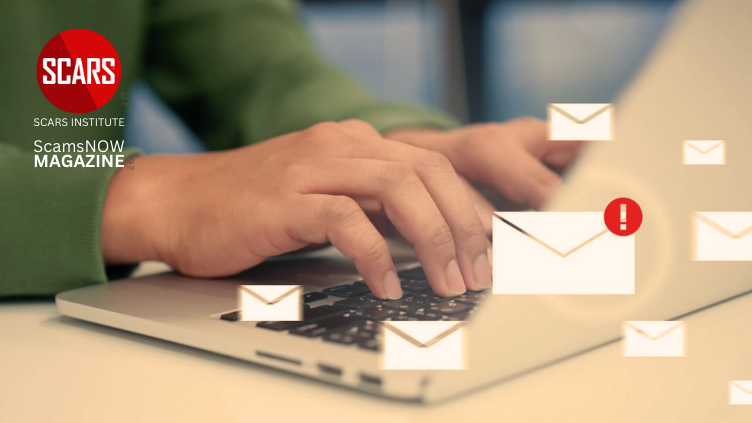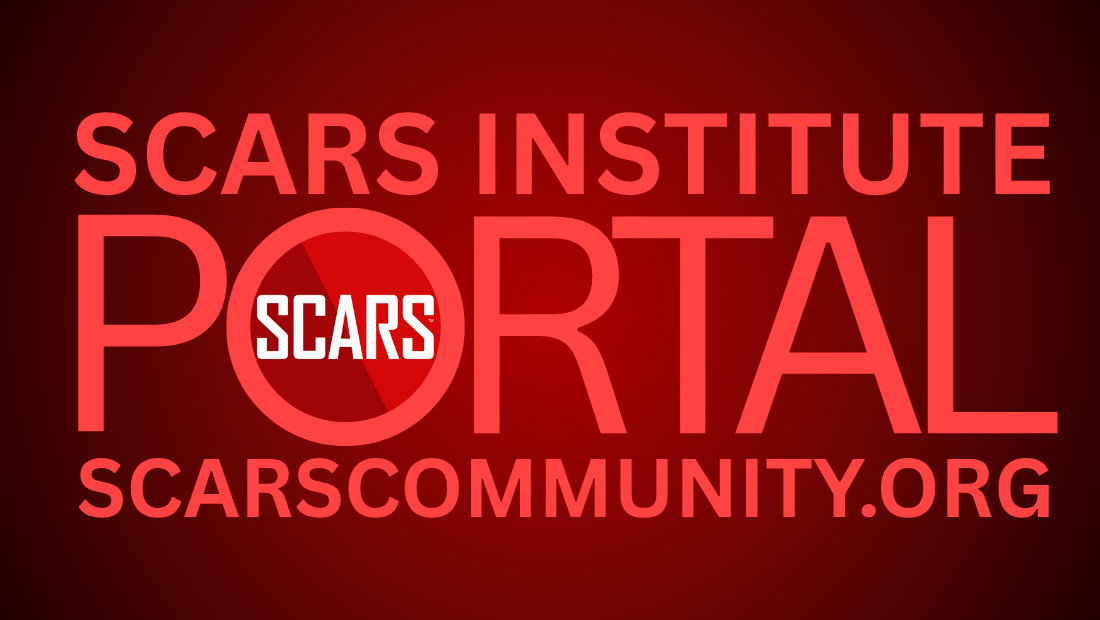INTERPOL: International Police Recover Over USD $40 million from International Email Scam Gang
Singapore & Timor Leste Police Make a Major Bust
Primary Category: Crimes & Criminals
Authors:
• SCARS Editorial Team – Society of Citizens Against Relationship Scams Inc.
• INTERPOL

INTERPOL: International Police Recover Over USD $40 million from International Email Scam Gang
Singapore authorities make record recovery thanks to cooperation with Timor Leste through INTERPOL
A global stop-payment mechanism developed by INTERPOL has helped Singapore authorities make their largest-ever recovery of funds defrauded in a business email compromise scam.
On 23 July 2024, a commodity firm based in Singapore filed a police report stating that they had fallen victim to a business email compromise scam, in which a scammer obtains access to or impersonates a business email account to deceive employees into transferring money to their bank account.
On 15 July, the firm received an email from a supplier requesting that a pending payment be sent to a new bank account based in Timor Leste. The email, however, came from a fraudulent account spelled slightly differently from the supplier’s official email address.
Unaware, the firm transferred USD 42.3 million to the fake supplier on 19 July, only discovering the crime four days later when the genuine supplier said it had not been paid.
On receipt of the police report, the Singapore Police Force (SPF) swiftly requested assistance from authorities in Timor Leste through INTERPOL’s Global Rapid Intervention of Payments (I-GRIP) mechanism.
I-GRIP uses the global police organization’s 196-country police network to speed up requests for assistance in financial crime cases.
On 25 July, the SPF’s Anti-Scam Centre received confirmation that USD 39 million was detected and withheld from the fake supplier’s bank account in Timor Leste.
Moreover, Timor Leste authorities arrested a total of seven suspects in relation to the scam through follow-up investigations, leading to the further recovery of more than USD 2 million. Steps are being taken for the return of the stolen funds to the victim in Singapore.
Isaac Oginni, Director of INTERPOL’s Financial Crime and Anti-Corruption Centre (IFCACC), said:
“Speed is crucial to successfully intercepting the proceeds of online scams, with police, financial intelligence units and banks cooperating across multiple jurisdictions in a race against time.
“The cooperation between authorities in Singapore and Timor Leste in this case was exemplary and demonstrates how quick action through INTERPOL can help recover funds taken from the fraud victims and identify the perpetrators.”
Global Threat
David Chew, Director of the SPF’s Commercial Affairs Department, said:
“Scams are a global threat that requires a global response from law enforcement. Today, money moves at the click of a button, and law enforcement must be able to move as fast to protect our citizens. We commend the swift and decisive action of INTERPOL’s Financial Crime and Anti-Corruption Centre, which played a pivotal role in the prompt interception of more than USD 40 million.”
Since its launch in 2022, INTERPOL’s I-GRIP mechanism has helped law enforcement intercept hundreds of millions of dollars in illicit funds.
During its pilot phase, I-GRIP was pivotal in helping several countries recover funds transferred to fraudsters in the early years of the COVID-19 pandemic, including the interception of USD 3.4 million transferred from an Italian company in September 2020 for non-existent medical equipment in Indonesia.
In a 2024 INTERPOL operation, police used I-GRIP to intercept USD 331,000 in a business email compromise fraud involving a Spanish victim who transferred money to Hong Kong, China.
INTERPOL is encouraging businesses and individuals to take preventative steps to avoid falling victim to business email compromise and other social engineering scams. For more information and resources, visit our website: https://www.interpol.int/Crimes/Financial-crime
Timeline of a Scam
|
15 July |
Singapore firm receives scam email from fake supplier |
|
19 July |
Firm transfers USD 42.3 million to the fake supplier via a bank account in Timor Leste |
|
23 July |
Firm discovers the fraud after genuine supplier reports not being paid and files police report in Singapore; Singapore Police Force reaches out to INTERPOL |
|
24 July |
Singapore receives confirmation via INTERPOL that more than USD 39 million was intercepted thanks to cooperation with Timor Leste authorities |
|
24-26 July |
Timor Leste authorities arrest several suspects and recovers additional USD 2 million |
-/ 30 /-
What do you think about this?
Please share your thoughts in a comment below!
Statement About Victim Blaming
SCARS Institute articles examine different aspects of the scam victim experience, as well as those who may have been secondary victims. This work focuses on understanding victimization through the science of victimology, including common psychological and behavioral responses. The purpose is to help victims and survivors understand why these crimes occurred, reduce shame and self-blame, strengthen recovery programs and victim opportunities, and lower the risk of future victimization.
At times, these discussions may sound uncomfortable, overwhelming, or may be mistaken for blame. They are not. Scam victims are never blamed. Our goal is to explain the mechanisms of deception and the human responses that scammers exploit, and the processes that occur after the scam ends, so victims can better understand what happened to them and why it felt convincing at the time, and what the path looks like going forward.
Articles that address the psychology, neurology, physiology, and other characteristics of scams and the victim experience recognize that all people share cognitive and emotional traits that can be manipulated under the right conditions. These characteristics are not flaws. They are normal human functions that criminals deliberately exploit. Victims typically have little awareness of these mechanisms while a scam is unfolding and a very limited ability to control them. Awareness often comes only after the harm has occurred.
By explaining these processes, these articles help victims make sense of their experiences, understand common post-scam reactions, and identify ways to protect themselves moving forward. This knowledge supports recovery by replacing confusion and self-blame with clarity, context, and self-compassion.
Additional educational material on these topics is available at ScamPsychology.org – ScamsNOW.com and other SCARS Institute websites.
-/ 30 /-
What do you think about this?
Please share your thoughts in a comment below!
Important Information for New Scam Victims
- Please visit www.ScamVictimsSupport.org – a SCARS Website for New Scam Victims & Sextortion Victims.
- SCARS Institute now offers its free, safe, and private Scam Survivor’s Support Community at www.SCARScommunity.org – this is not on a social media platform, it is our own safe & secure platform created by the SCARS Institute especially for scam victims & survivors.
- SCARS Institute now offers a free recovery learning program at www.SCARSeducation.org.
- Please visit www.ScamPsychology.org – to more fully understand the psychological concepts involved in scams and scam victim recovery.
If you are looking for local trauma counselors, please visit counseling.AgainstScams.org
If you need to speak with someone now, you can dial 988 or find phone numbers for crisis hotlines all around the world here: www.opencounseling.com/suicide-hotlines
Statement About Victim Blaming
Some of our articles discuss various aspects of victims. This is both about better understanding victims (the science of victimology) and their behaviors and psychology. This helps us to educate victims/survivors about why these crimes happened and not to blame themselves, better develop recovery programs, and help victims avoid scams in the future. At times, this may sound like blaming the victim, but it does not blame scam victims; we are simply explaining the hows and whys of the experience victims have.
These articles, about the Psychology of Scams or Victim Psychology – meaning that all humans have psychological or cognitive characteristics in common that can either be exploited or work against us – help us all to understand the unique challenges victims face before, during, and after scams, fraud, or cybercrimes. These sometimes talk about some of the vulnerabilities the scammers exploit. Victims rarely have control of them or are even aware of them, until something like a scam happens, and then they can learn how their mind works and how to overcome these mechanisms.
Articles like these help victims and others understand these processes and how to help prevent them from being exploited again or to help them recover more easily by understanding their post-scam behaviors. Learn more about the Psychology of Scams at www.ScamPsychology.org
SCARS INSTITUTE RESOURCES:
If You Have Been Victimized By A Scam Or Cybercrime
♦ If you are a victim of scams, go to www.ScamVictimsSupport.org for real knowledge and help
♦ SCARS Institute now offers its free, safe, and private Scam Survivor’s Support Community at www.SCARScommunity.org/register – this is not on a social media platform, it is our own safe & secure platform created by the SCARS Institute especially for scam victims & survivors.
♦ Enroll in SCARS Scam Survivor’s School now at www.SCARSeducation.org
♦ To report criminals, visit https://reporting.AgainstScams.org – we will NEVER give your data to money recovery companies like some do!
♦ Follow us and find our podcasts, webinars, and helpful videos on YouTube: https://www.youtube.com/@RomancescamsNowcom
♦ Learn about the Psychology of Scams at www.ScamPsychology.org
♦ Dig deeper into the reality of scams, fraud, and cybercrime at www.ScamsNOW.com and www.RomanceScamsNOW.com
♦ Scam Survivor’s Stories: www.ScamSurvivorStories.org
♦ For Scam Victim Advocates visit www.ScamVictimsAdvocates.org
♦ See more scammer photos on www.ScammerPhotos.com
You can also find the SCARS Institute’s knowledge and information on Facebook, Instagram, X, LinkedIn, and TruthSocial
Psychology Disclaimer:
All articles about psychology and the human brain on this website are for information & education only
The information provided in this and other SCARS articles are intended for educational and self-help purposes only and should not be construed as a substitute for professional therapy or counseling.
Note about Mindfulness: Mindfulness practices have the potential to create psychological distress for some individuals. Please consult a mental health professional or experienced meditation instructor for guidance should you encounter difficulties.
While any self-help techniques outlined herein may be beneficial for scam victims seeking to recover from their experience and move towards recovery, it is important to consult with a qualified mental health professional before initiating any course of action. Each individual’s experience and needs are unique, and what works for one person may not be suitable for another.
Additionally, any approach may not be appropriate for individuals with certain pre-existing mental health conditions or trauma histories. It is advisable to seek guidance from a licensed therapist or counselor who can provide personalized support, guidance, and treatment tailored to your specific needs.
If you are experiencing significant distress or emotional difficulties related to a scam or other traumatic event, please consult your doctor or mental health provider for appropriate care and support.
Also read our SCARS Institute Statement about Professional Care for Scam Victims – click here
If you are in crisis, feeling desperate, or in despair, please call 988 or your local crisis hotline – international numbers here.
More ScamsNOW.com Articles
A Question of Trust
At the SCARS Institute, we invite you to do your own research on the topics we speak about and publish. Our team investigates the subject being discussed, especially when it comes to understanding the scam victims-survivors’ experience. You can do Google searches, but in many cases, you will have to wade through scientific papers and studies. However, remember that biases and perspectives matter and influence the outcome. Regardless, we encourage you to explore these topics as thoroughly as you can for your own awareness.















![NavyLogo@4x-81[1] INTERPOL: International Police Recover Over USD $40 million from International Email Scam Gang - 2024](https://scamsnow.com/wp-content/uploads/2025/04/NavyLogo@4x-811.png)









![scars-institute[1] INTERPOL: International Police Recover Over USD $40 million from International Email Scam Gang - 2024](https://scamsnow.com/wp-content/uploads/2025/04/scars-institute1.png)

![niprc1.png1_-150×1501-1[1] INTERPOL: International Police Recover Over USD $40 million from International Email Scam Gang - 2024](https://scamsnow.com/wp-content/uploads/2025/04/niprc1.png1_-150x1501-11.webp)